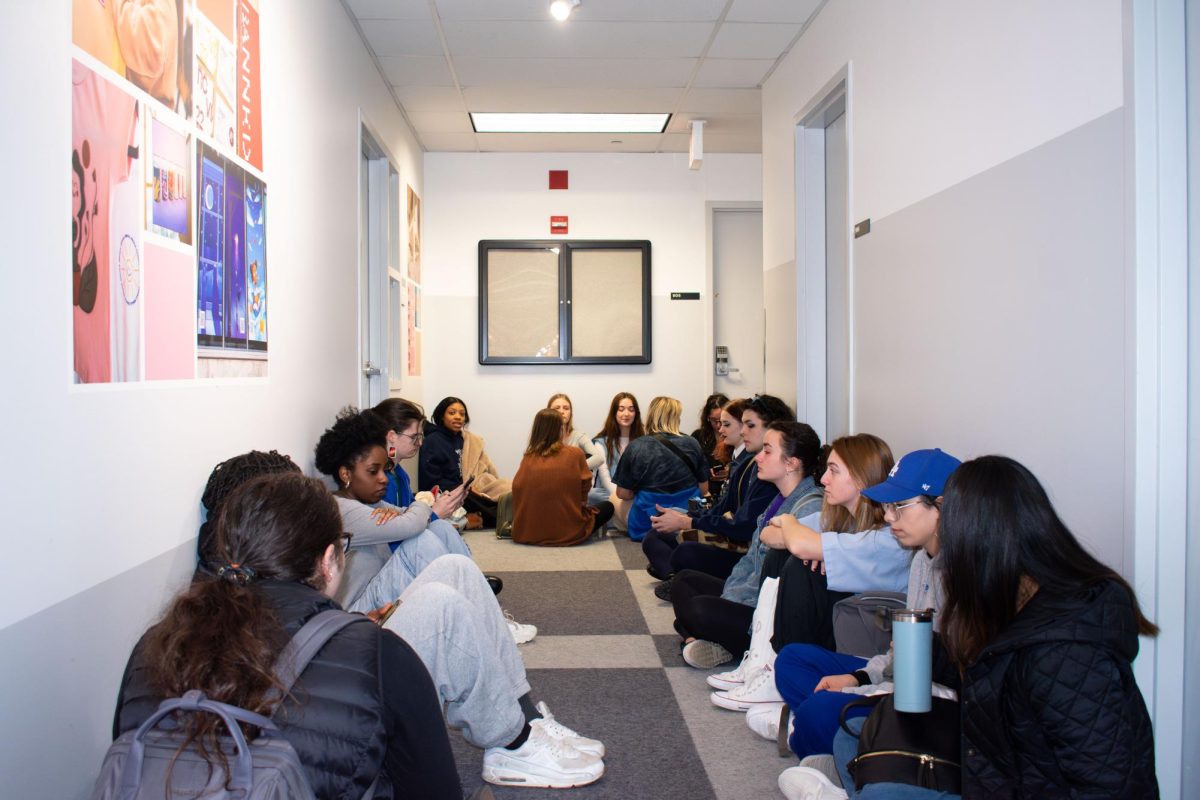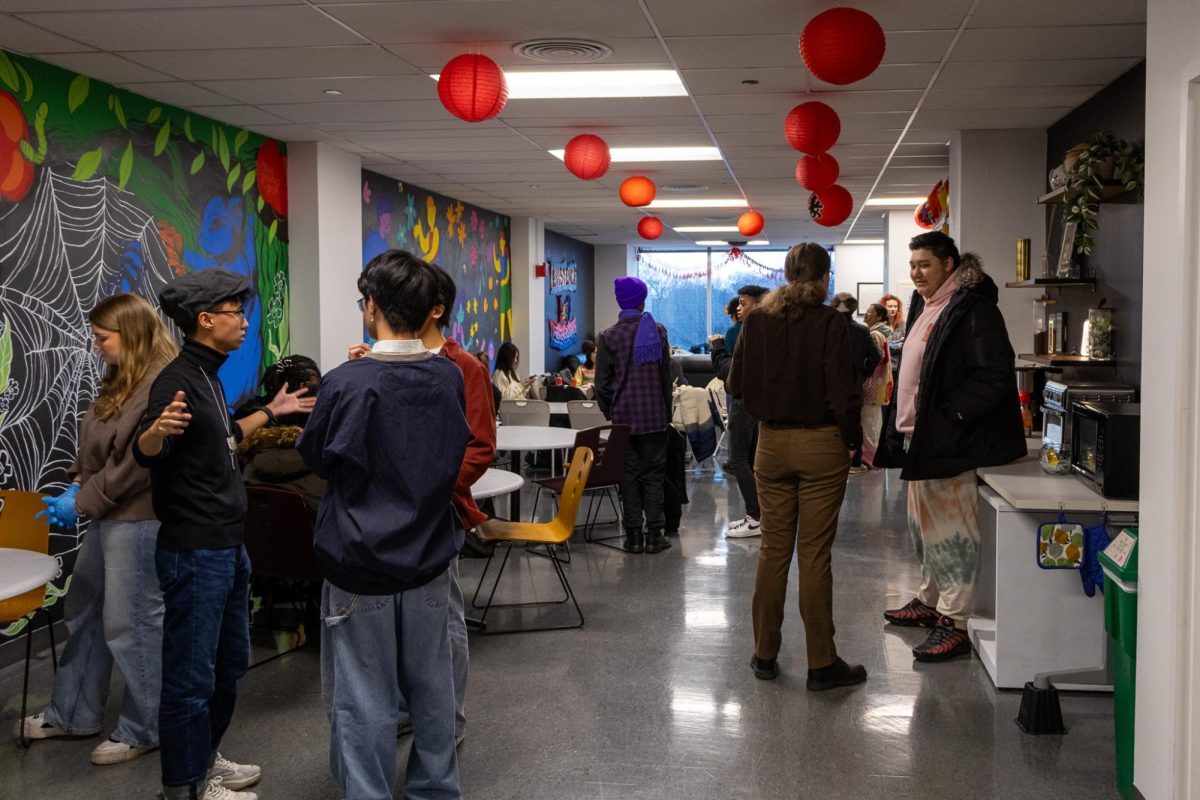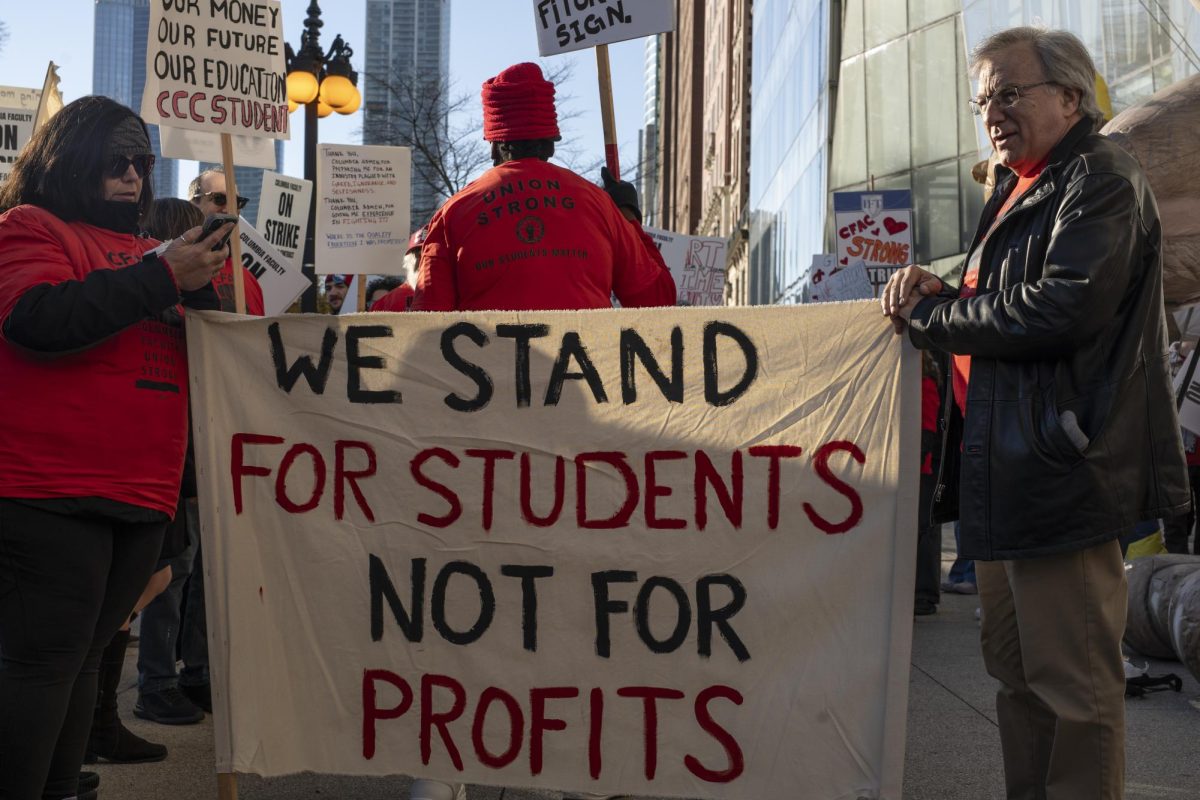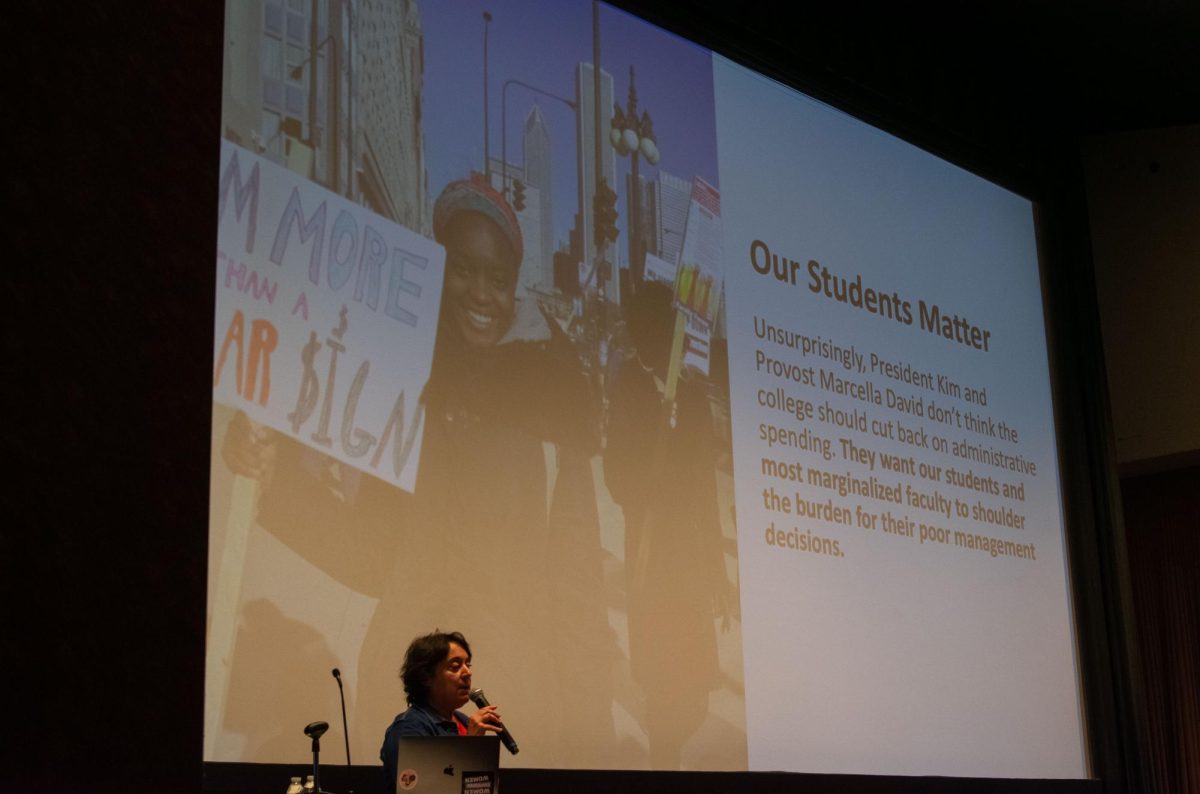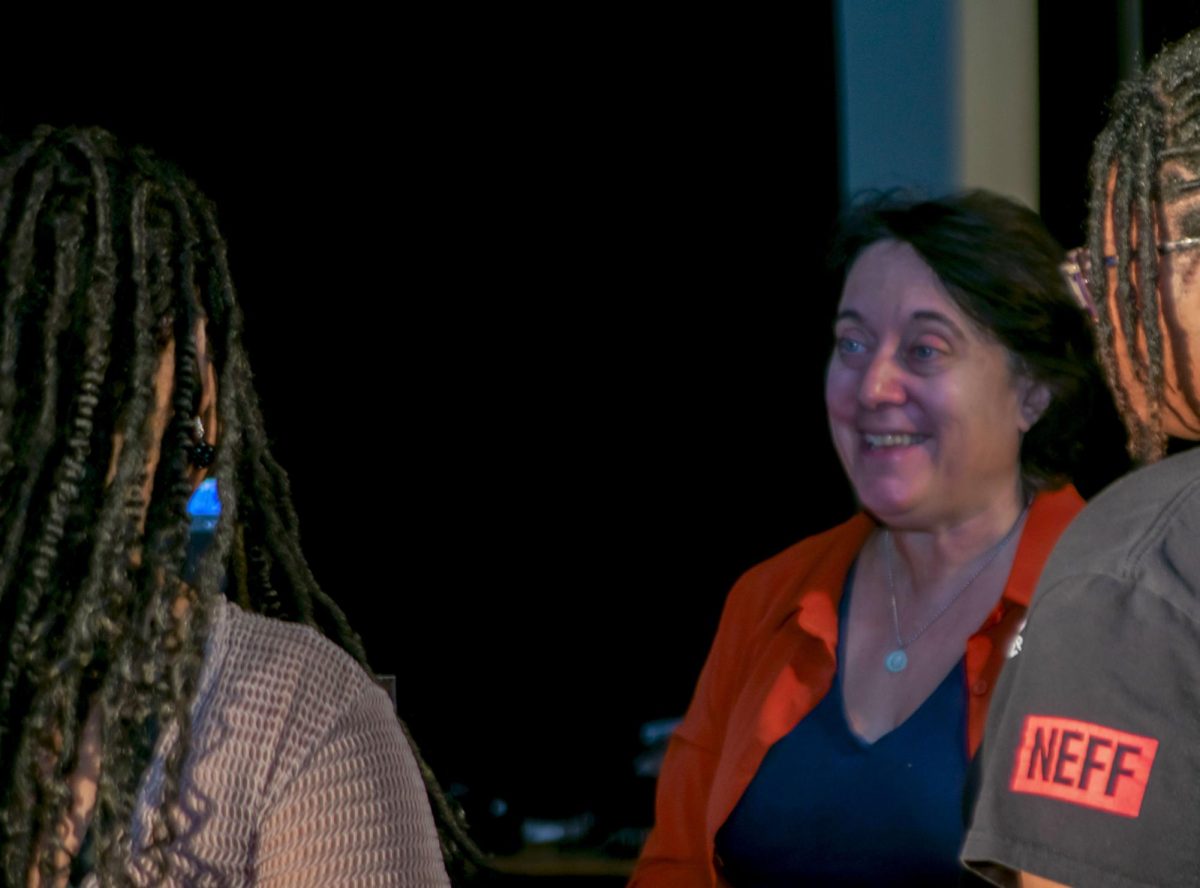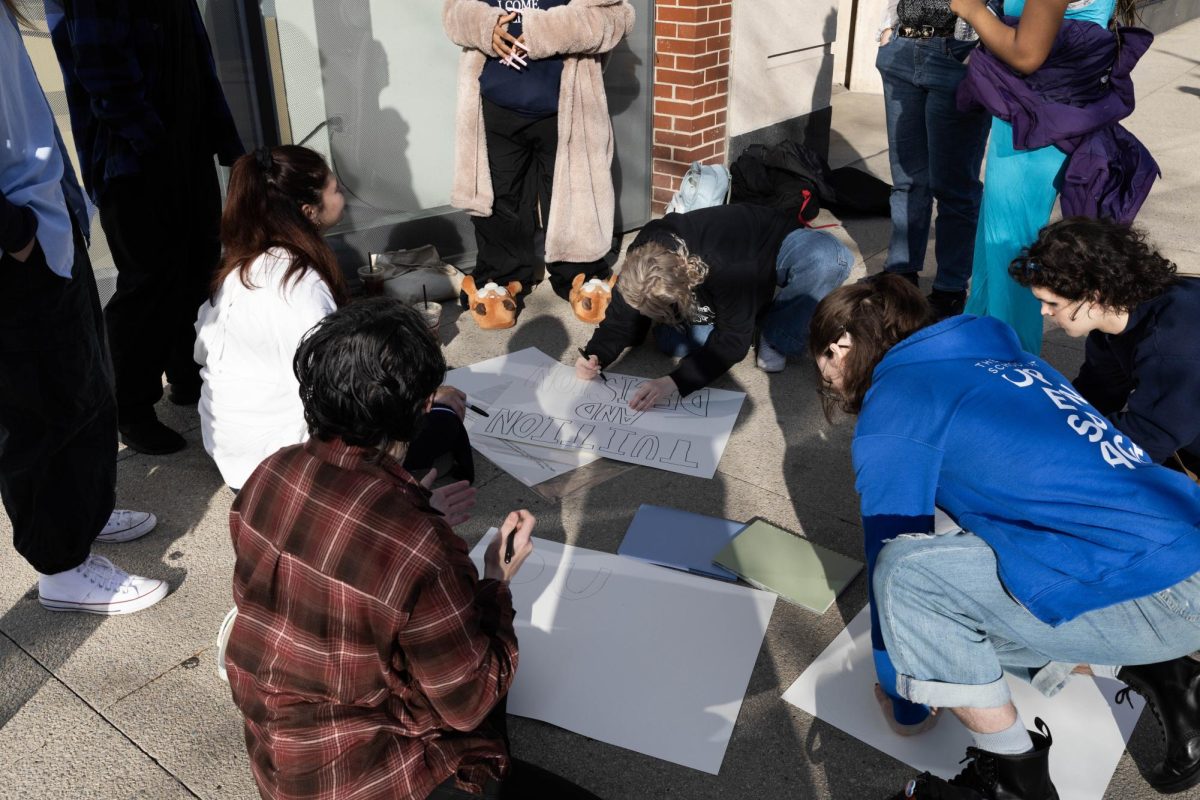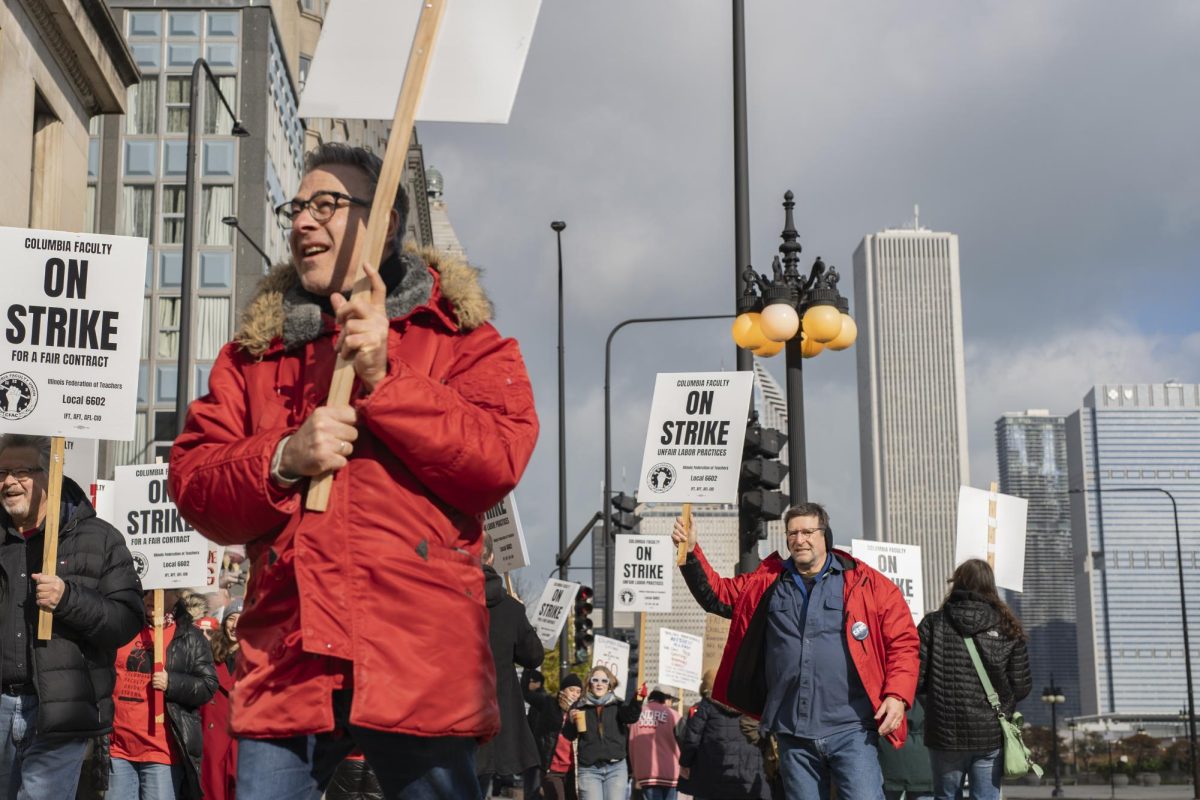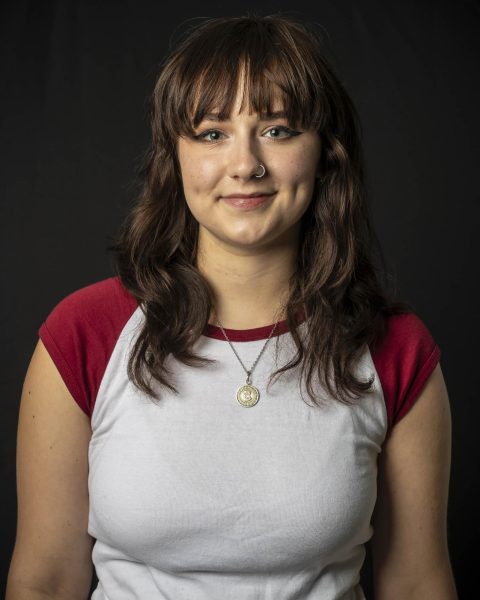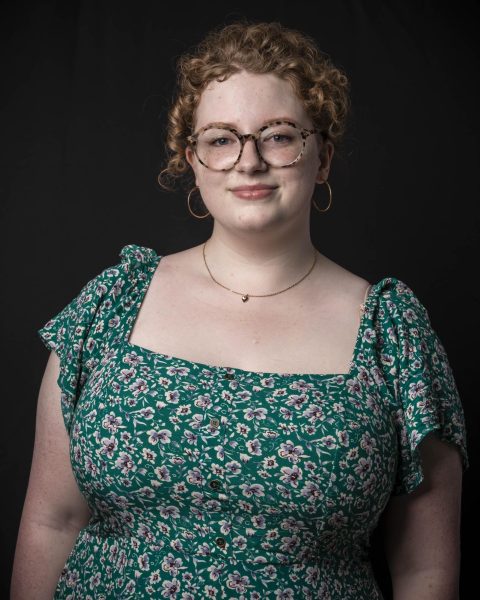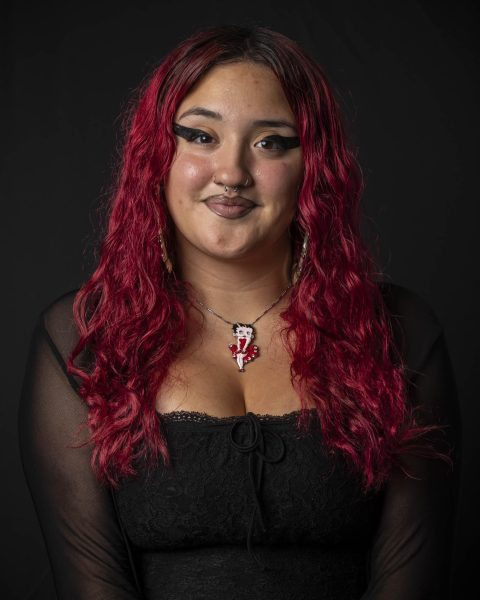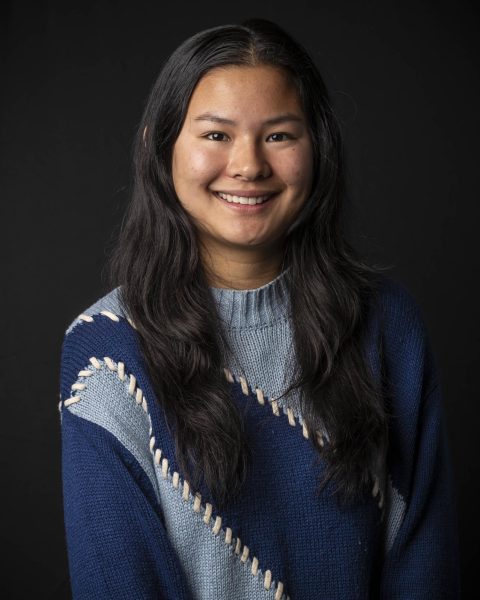Dozens of students staged a sit-in at the 600 S. Michigan Ave. building and protested in front of the Student Center on Thursday, Nov. 16, demanding a tuition reimbursement for the three weeks that most classes have been canceled.
They called on the college to settle the labor dispute with the Columbia Faculty Union, which walked out on Oct. 30 over cuts the college is making to address a $20 million deficit.
“We came in today because we feel that our money should be given back to us after all these weeks of not having classes,” said Lydia Jacobson, a senior dance major.
Hundreds of classes have been canceled — the college estimates that at least 75 percent of the part-time instructors participated in the early part of the strike, although some started coming back to the classroom this week. Some part-time faculty also moved their classes to Zoom.
The union represents 584 part-time instructors. The college’s 221 full-time faculty have continued to teach.
Students called for a boycott of classes on Thursday, which mostly impacted full-time faculty.
“We want to support the strike as well as our full-time faculty, but it feels like we’re being caught in the middle of two divorced parents almost,” Jacobson said.
Lambrini Lukidis, associate vice president of Strategic Communications & External Relations, said the college and union bargained all day on Wednesday, Nov. 15 and into the night. “The union said it was not ready to meet again today,” she told the Chronicle.
In an email sent, the college said the union agreed to consider bringing in a federal mediator to try and break the deadlock.
Union leaders did not respond to an email seeking comment.
Separately on Thursday, a group of about 25 students gathered outside of the Student Center to protest against tuition increases.
Marilupe Perez, junior acting major, said she appreciated the students coming together with instructors to support each other. She is worried that tuition is going to increase – which the college has said will need to happen to help balance the budget.
“I’m already struggling to pay tuition right now and if it’s going to be even more, I’m going to go broke. I’m trying not to take debt at all obviously but if I have to, I guess I’ll have to and I hate that,” Perez said.
Joel Forsberg, a transfer senior film and television major, said that the change the school has undergone during his time here has “felt consistent” over the last two years. He described it as a “steady decline.”
The protest at the 600 building began Thursday morning, with students holding picket signs beside part-time instructors.
Students were not allowed to bring their picket signs past security, who said the signs posed a safety risk. Signs read phrases like “Education is not a business” and “Action not emails.”
About an hour into the protest, students entered the building, where they planned to stage a sit-in on the fifth floor outside of the office of Senior Vice President and Provost Marcella David. But security denied them entry by blocking the entrance through the stairwell and disabling elevator access to that floor. The group moved throughout different floors of the building before the majority sat on the ninth floor. More people filed in as the sit-in continued, most coming from the demonstration at the Student Center.
In all, there were about 50 students.
Senior dance major and SGA Dance Senator CK King helped organize the sit-in. She said she got the idea after hosting a town hall meeting for the Dance Department on Nov. 13, where many students expressed their frustration about the strike.
“A lot of teachers were telling me that in order for this strike to stop and for us to have classes the students would have to do something about it and I’m like ‘why don’t we strike?’ Or ‘why don’t we talk about how we’re being exploited?’” she said.
Sophomore dance major Dafne Garcia, who heard about the sit-in from a group chat with other dance students, said she is making a lot of sacrifices to come to Columbia. “I thought it would be worth it to come to this school, but now that I see that they don’t really care about our money and I’m very disappointed,” she said. “I am not going to be able to be here next semester because of money.”
Ben Kneblik, a senior audio arts and acoustics major, shared similar frustrations, saying he feels he is being “used for money” and “taken advantage of.” He was also concerned about completing all of his required and desired courses before his expected graduation.
“There have been courses that have been canceled that I wanted to take my senior year, that are the courses that I value in the audio department that are the reason that I’m here. The courses that I care about are not being deemed necessary for my graduation. But just because a course isn’t necessary, that doesn’t mean that it’s not valuable,” Kneblik said.
In an email last weekend, David acknowledged that the college was not going to be able to run all courses even those popular with students.
Susan Smith, a part-time design instructor who has regularly participated, encouraged students to keep advocating for their education.
“I just hope that more and more students will come out and join us and that you’ll be angry about how your tuition is being spent. You won’t be able to take the classes that you have hoped for. You won’t get those small class sizes because of what administration is doing, thinking that you’re not gonna care,” she said.
King said students deserve to be heard.
“Who are they going to listen to the most? The students, because we’re paying them for their jobs, we’re paying for the buildings to be open, but we’re not even reaping the resources,” she said.
Additional reporting by Olivia Cohen and Robin Sluzas.


